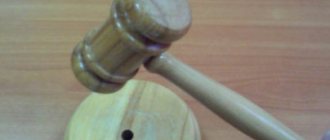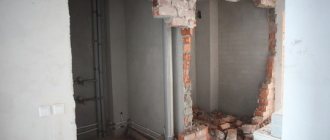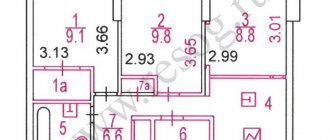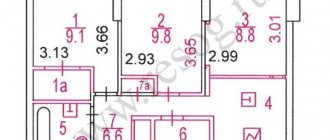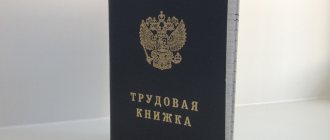People who are planning to build a private house or have already completed construction work are faced with the issue of connecting a water supply. To save time on the bureaucratic part, the “cunning people” decide to bypass the authorized bodies and connect the water without permission. But such actions are illegal and entail a number of consequences for the violator. What is the nature of the violation? What is the fine for illegal water connection in 2021? Is it possible to legitimize the work once it is discovered? We will consider these and other questions below.
What is considered illegal tapping?
The procedure for water supply (sewage) is clearly regulated by law. These services should be provided by specialized organizations. And consumers need to independently or through the management company, HOA, enter into an appropriate agreement and pay for the consumed resource.
However, not all consumers fulfill their obligations under the law properly. Water supply companies often have to deal with cases of illegal connections to water supply networks. Such violations lead not only to free use of water, but also to disruptions in the system.
The definition of unauthorized tapping into the water supply system is given in the Rules for cold water supply and sanitation. They were approved by Government Decree No. 644 of July 29, 2013.
Unauthorized connection means connection to a centralized water supply (sewage) system in the absence of an agreement or in violation of its provisions. Using water for unauthorized tapping is illegal.
When a connection is considered a violation
According to the official Rules for the provision of public utilities, approved by decree of the Government of the Russian Federation in 2021, a violator of the law is one who has not agreed on the water supply connection with the water and communal services authorities.
According to the Code of Administrative Offenses of Russia, liability for illegal tapping into a municipal water supply can be borne by a private individual or an entrepreneur who owns a facility with unauthorized water supply from a common pipeline and manages such a house.
It is prohibited to unauthorizedly change the design of network highways, make illegal connections even in your own house or apartment, or change the indicators of metering devices.
Responsibility will also be borne by a person who uses sewerage without appropriate metering devices. Since in this case it is difficult to determine how much water he used for free, the fine is calculated based on the maximum consumption indicators multiplied by the number of days from the moment of unauthorized tapping.
Who should connect to water supply networks?
Connection to water supply systems must be carried out by specialists. Otherwise, errors may be made that affect the quality and safety of the provision of this utility service.
Persons wishing to connect to the water supply must submit an application to Vodokanal or another water supply organization in the city. Upon satisfaction of the application, an agreement is concluded with the subscriber and connection to the networks is carried out.
Upon receipt of an application for connection from land owners and self-government bodies, Vodokanal provides technical conditions for connection. If the applicant himself has determined the required load, then he applies for connection without first obtaining specifications.
How to legalize an illegal connection?
To avoid problems and pay large fines, you can contact utility services and agree with them on the issue of legalizing the current connection. The authorized bodies agree if they are interested in a peaceful resolution of the issue.
If a person has maliciously violated the law, utility workers are unlikely to cooperate. It’s another matter if the owner of the house did not know about the connection (for example, he purchased the property in violation). To legalize the connection, the interested person submits an application. The applicant is the owner of the storage unit where the illegal connection takes place. Utility workers assess the situation and decide whether it is possible to resolve the problem peacefully.
Fines and other types of liability for illegal tapping into water pipes
If the connection to the water supply is illegal, the offender will be punished. The Code of Administrative Offenses provides for liability for violations when using and connecting to water supply systems.
Article 7.2 of the code establishes the following fines for violators:
- for individuals - one thousand to one thousand five hundred rubles;
- for officials - from two thousand to three thousand rubles;
- for organizations - from twenty thousand to thirty thousand rubles.
In addition to these fines, the consumer will have to pay for the water used during the entire previous period. The violator also risks falling under criminal liability under Art. 158 of the Criminal Code of the Russian Federation. This act is equivalent to theft committed from an oil or gas pipeline (clause “b”, part 3).
According to the criminal code, violations can even result in imprisonment of up to a year.
It is also important to take into account the fact that unauthorized connection can lead to damage to pipes and disruption of the system. Network owners can present their property claims against violators.
Fine for unauthorized sewer connection
If residents of an apartment building illegally connected to the sewer, they will also have to bear responsibility. Its size is also provided for in Art. 7.2. Code of Administrative Offences. Accordingly, the fine for citizens will be from 1000 to 1500 rubles.
Act on unauthorized connection to the water supply: requirements for the document and its sample
Illegal connections to networks are most often discovered during inspections. When a violation is detected, service organizations must draw up a written report . It reflects the following information:
- date and place of the inspection;
- persons carrying out the inspection;
- fact of violation;
- information about the offender;
- about the place of unauthorized tapping;
- belonging to networks that were illegally joined.
The act must be signed by the person who drew it up, as well as by the consumer. If he is absent or is unable to attend the inspection, his representative may come instead of the consumer. The powers of the representative must be confirmed by a power of attorney.
If no one appears, then the act may also be signed by the involved verification witnesses. In this case, the violator is sent a notification about the identified fact of illegal accession.
A sample act on the identification of illegal tapping can be downloaded from our website. ⇐
Sample warning
Based on the violation report drawn up by the utility service, a warning is issued to the consumer. It proposes to voluntarily stop unauthorized use of water and pay for the volume of resource consumed.
If the specified requirements are not met by the consumer, then the consumer faces prosecution, a lawsuit to collect the debt for the utility service, as well as being disconnected from the water supply by cutting off unauthorized pipes.
Documents for legal insertion
In order for connection to the water supply not to be considered illegal, it is necessary to comply with the procedure established by law. If we are talking about supplying water to a private house, then the following documents are needed:
- application from the owner of the site;
- technical connection conditions;
- connection agreement.
The full list of required documentation should be clarified with Vodokanal or another water supply organization in the city. If documents are submitted by a representative, then it is necessary to present a power of attorney for him.
How to legalize plumbing in a private house
What exactly is this procedure for legitimizing the tie-in? This is just an official certificate of connection to the water supply system.
In order to arrange everything legally, you will need to contact the company that owns the water supply system with the following list of papers:
- Statement.
- Passport.
- Documents confirming ownership of the house where the connection is being made.
You may also have to dismantle the old tie-in yourself if it does not meet technical and other requirements.
However, this is a dangerous activity that can lead to unforeseen consequences, so it is better to turn to professionals for such work.
How to legalize tapping into a water supply
If the consumer has received a notification about the need to eliminate an unauthorized tap into the water supply or sewer system, he needs to take appropriate measures. Legalizing the completed connection will help you avoid a fine, especially criminal punishment.
The offender may try to legalize the connection made. To do this, you need to submit a corresponding application to the water supply organization. If the connection was carried out without technical violations, and the consumer paid for water, then there is a chance to legalize the connected pipes.
Unauthorized tapping into a water supply system: judicial practice
Issues regarding the elimination of violations by consumers who have illegally connected to water supply networks are often resolved by the court. In judicial practice, there are claims by owners of private water pipelines to declare connections to them illegal.
If there is evidence of this fact, the act of identifying an illegal connection by the court, the plaintiff’s demands are satisfied. An example is the decision of the Voroshilovsky District Court of Volgograd in case No. 2-348/2012.
The Dolinsky City Court of the Sakhalin Region in case No. 2-133/2015 satisfied the demands of Vodokanal-2 LLC against persons who made an unauthorized connection to the water supply. He collected the debt from the violators for unaccounted water consumption.
On January 25, 2021, the Industrial District Court of Stavropol denied the claim to the plaintiff in a similar case due to the expiration of the statute of limitations. As follows from practice, in order to satisfy claims in these disputes, the court must reliably establish the fact of illegal tapping by the defendant.
Sometimes people held accountable for unauthorized connection to the water supply also go to court. They usually challenge the legality of the act drawn up and the punishment imposed on them. The court may cancel the sanctions if it finds violations of the law.
On-site inspection of water supply in a private house
Resource supply organizations arrange such inspections at different intervals, but most often the basis for them is complaints from the population. Worker visits are organized to check the operation of metering devices, verify readings, and search for illegal taps into the water supply system and other utility supply systems.
Such inspections can be scheduled, when employees go to the site at a long-determined moment. And there are unscheduled ones, when specialists are sent to a certain place for some reason: a complaint, a malfunction, inaccurate readings, etc.
How to find a sidebar
Visual inspection is usually used to find such connections. Each Vodokanal has connection diagrams by which you can check whether there is a certain connection on them or not.
Third-party organizations offer their services to search for illegal tappings using special equipment.
Is it possible not to allow employees of the management company, housing and communal services, water utility into the apartment or house to check meters or unauthorized connections?
Of course, you can not let him in, but there will be consequences for this. The procedure for checking meters and other equipment is described in the Government Decree “On the provision of public services...”. It clearly states that the organization has every right to conduct such inspections no more than once every six months.
However, the company has an obligation to warn residents about this 2 weeks before the event.
The owner has legal grounds not to allow representatives of the organization into his home, having warned at least 2 days before the inspection about his absence.
If the tenant did not warn anyone and did not let the representatives in, then they draw up an appropriate act of refusal to allow access to the meter. When 3 months have passed since its preparation, the organization has every right to carry out calculations not according to actual readings, but according to standards.
Model act on non-contractual consumption of water supply and sanitation
The act on non-contractual (unaccounted) water consumption is drawn up in any order. There are no samples; each company has the right to use its own form. Most often, in such cases, an act of unauthorized connection to the water supply is used, see below.
Act on unauthorized connection to water supply
A sample of this document can be downloaded from this link. ⇐
